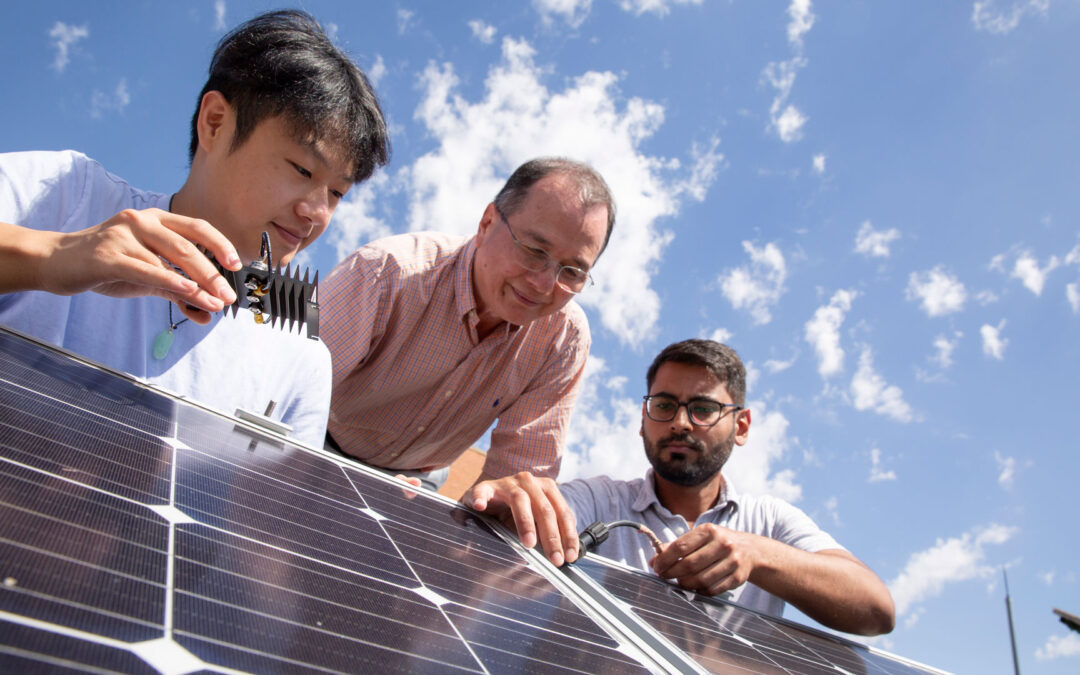The destabilizing impact of climate change is hard to ignore. The energy industry has been heavily implicated in the evolving climate crisis due to its ever-increasing demand for fossil fuels. The U.S. Department of Energy has funded billions of dollars on research and development projects to create long-term solutions and decrease carbon emissions.
Researchers are working to extract the energy available from renewable sources, such as wind and solar, to achieve the net-zero emission solutions that are necessary for humanity to sustainably coexist with the environment.
Hydrogen has been integrated into several industrial sectors, such as the production of fertilizer, however the harvesting process is still derived from fossil fuels. Alternative harvesting methods for generating net-zero hydrogen are emerging as more sustainable alternatives.
Meng Tao, a professor of electrical engineering in the School of Electrical, Computer and Energy Engineering, part of the Ira A. Fulton Schools of Engineering, has received $5 million in funding from the U.S. National Science Foundation to lead U.S. efforts to establish international partnerships through the Global Hydrogen Production Technologies Center, or HyPT Center, to advance net-zero hydrogen production. The center is jointly funded by four countries, including Australia, Canada and the United Kingdom. The total funds allocated to the Center, depending on exchange rates, are between $15 to 20 million.
The HyPT Center aims to deliver technological breakthroughs and reduce socioeconomic barriers. One goal is to reduce the cost of techniques for splitting hydrogen molecules from natural gas and water — a process used to generate energy. The researchers will also assess the logistics of establishing a global hydrogen economy. So far, the team consists of more than 40 experts from 26 organizations in the U.S., Australia, Canada, the United Kingdom, Egypt and Germany.
